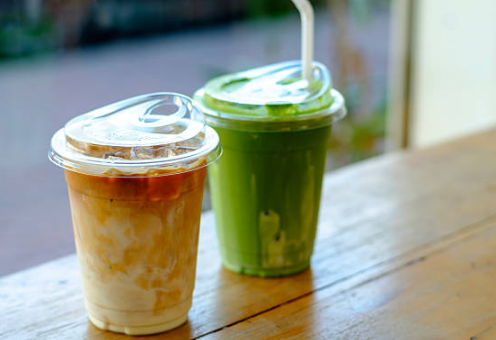With matcha gaining popularity, you may be considering swapping out your daily coffee for this trendy green drink. Made by whisking powdered green tea into hot water or milk, matcha is known for its earthy flavor and impressive health benefits—packed with antioxidants and amino acids that may help fight cancer and improve brain function.
Coffee, too, is rich in antioxidants. About half of American adults drink it daily to fight fatigue. Studies suggest that coffee may help reduce inflammation, lower the risk of type 2 diabetes, and protect against depression. In short, both coffee and matcha offer real health benefits—but which one is better for you?

Health Benefits of Coffee
Coffee is famous for its high caffeine content, but its benefits go far beyond an energy boost:
-
Rich in antioxidants: Coffee is loaded with polyphenols, especially chlorogenic acids, which help reduce inflammation and support healthy blood sugar and cholesterol levels. They may also have cancer-fighting effects.
-
May lower Parkinson’s risk: Coffee consumption may help prevent the buildup of abnormal proteins linked to Parkinson’s disease.
-
May reduce diabetes risk: One study found that each additional daily cup of caffeinated or decaf coffee lowered type 2 diabetes risk by 6%.
-
May benefit brain health: Drinking coffee (without tea) has been linked to a reduced risk of dementia after stroke.
-
May reduce depression risk: In one study, people who drank around 400 mL (about 1.5 cups) of coffee daily had the lowest risk of depression. Another study found each extra daily cup lowered depression risk by 8%.
Health Benefits of Matcha
Like coffee, matcha contains caffeine—but it also has unique perks of its own:
-
High in antioxidants: Matcha is rich in catechins, particularly EGCG (epigallocatechin gallate), which help neutralize free radicals linked to chronic disease. EGCG may help protect against colon, gallbladder, and bile duct cancers.
-
May boost cognitive function: One study found daily matcha improved cognitive function in older women. It may also reduce anxiety and enhance memory by increasing dopamine and serotonin activity.
-
May support metabolic health: Research suggests that drinking matcha may improve metabolic markers in people with higher body weight, including increased HDL (“good”) cholesterol, reduced blood sugar, and elevated anti-inflammatory IL-10 levels.
-
May reduce depression: A recent mouse study showed that matcha powder had antidepressant effects by activating parts of the brain’s dopamine system. While human research is limited, one study linked green tea drinking to lower rates of depression in postmenopausal women.
How Do They Compare in Caffeine?
Both drinks contain caffeine, but amounts vary depending on how they’re prepared:
-
Coffee: Contains about 10–12 mg of caffeine per gram. A typical cup has 80–100 mg of caffeine.
-
Matcha: Contains 18.9–44.4 mg of caffeine per gram. Most servings use about 2 grams, totaling 38–89 mg per cup.
Key Similarities and Differences
Antioxidants
Both coffee and matcha are rich in polyphenols but offer different types:
-
Coffee is high in chlorogenic acids
-
Matcha is high in catechins, especially EGCG
These compounds help protect against inflammation, oxidative stress, and chronic illnesses like diabetes and cancer.
Energy & Focus
Both can help you feel more alert, but they do it in slightly different ways:
-
Coffee: Delivers a quick, strong energy boost and sharper alertness.
-
Matcha: Provides a calmer, more sustained focus.
Matcha contains L-theanine, an amino acid that promotes relaxation and may offset caffeine-related jitters.
Mental Health & Cognitive Effects
-
Coffee: Has stronger research linking it to reduced depression risk.
-
Matcha: May help with focus, anxiety, and smoother mood regulation.
Drinking either beverage (or both!) is associated with a lower risk of stroke and dementia.
Acidity & Digestive Tolerance
-
Coffee: More acidic (pH 4.85–5.13), and more likely to cause acid reflux.
-
Matcha: Less acidic (pH 5.58–5.94), and generally easier on the stomach.
So, Which One Is Better?
Both coffee and matcha can be healthy additions to your diet—in moderation.
-
Choose coffee if you want a stronger energy boost or are looking for potential benefits against depression.
-
Go with matcha if you’re caffeine-sensitive, want longer-lasting focus, need a calmer energy, or struggle with acid reflux.
Ultimately, the best choice depends on your body, lifestyle, and health goals.

